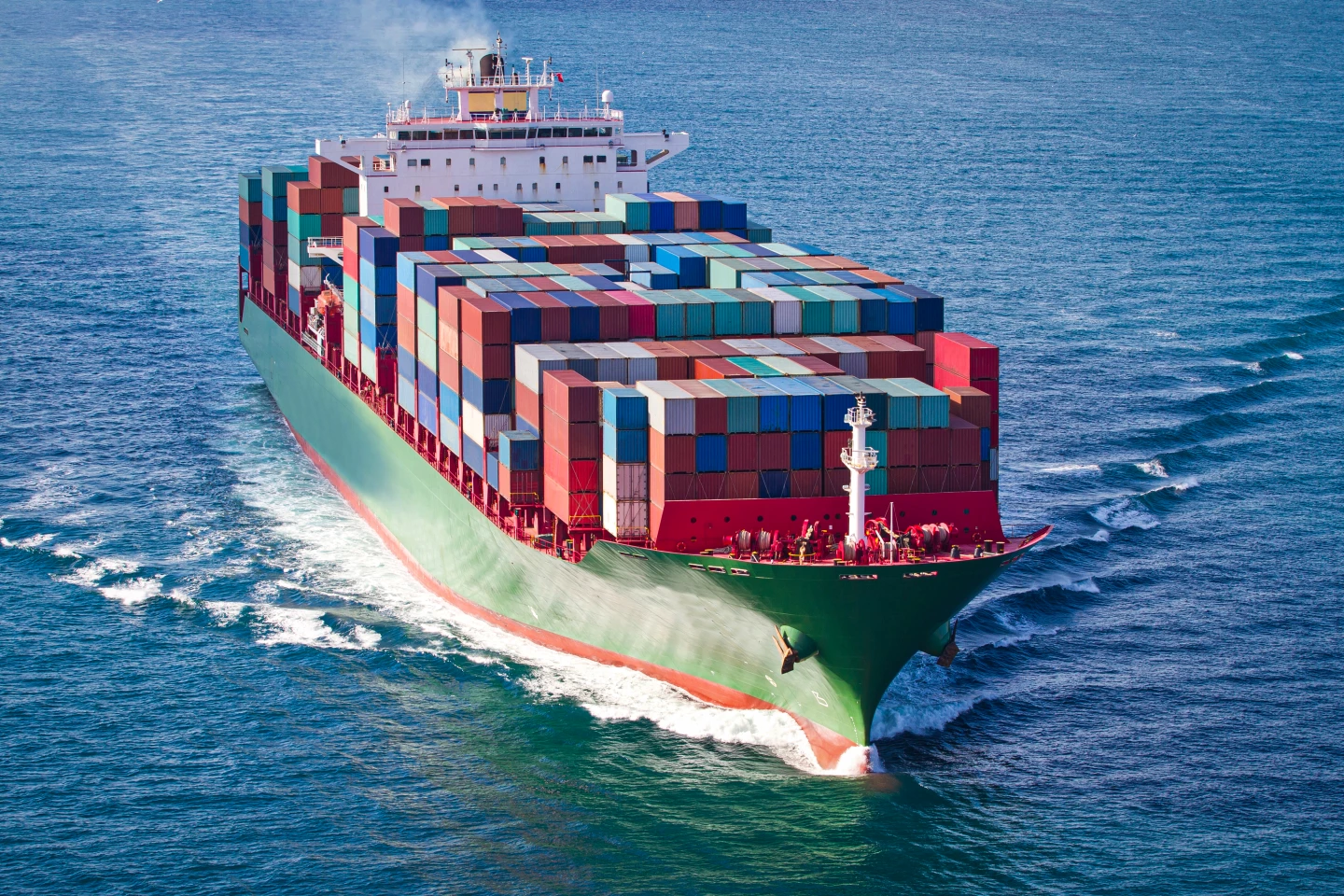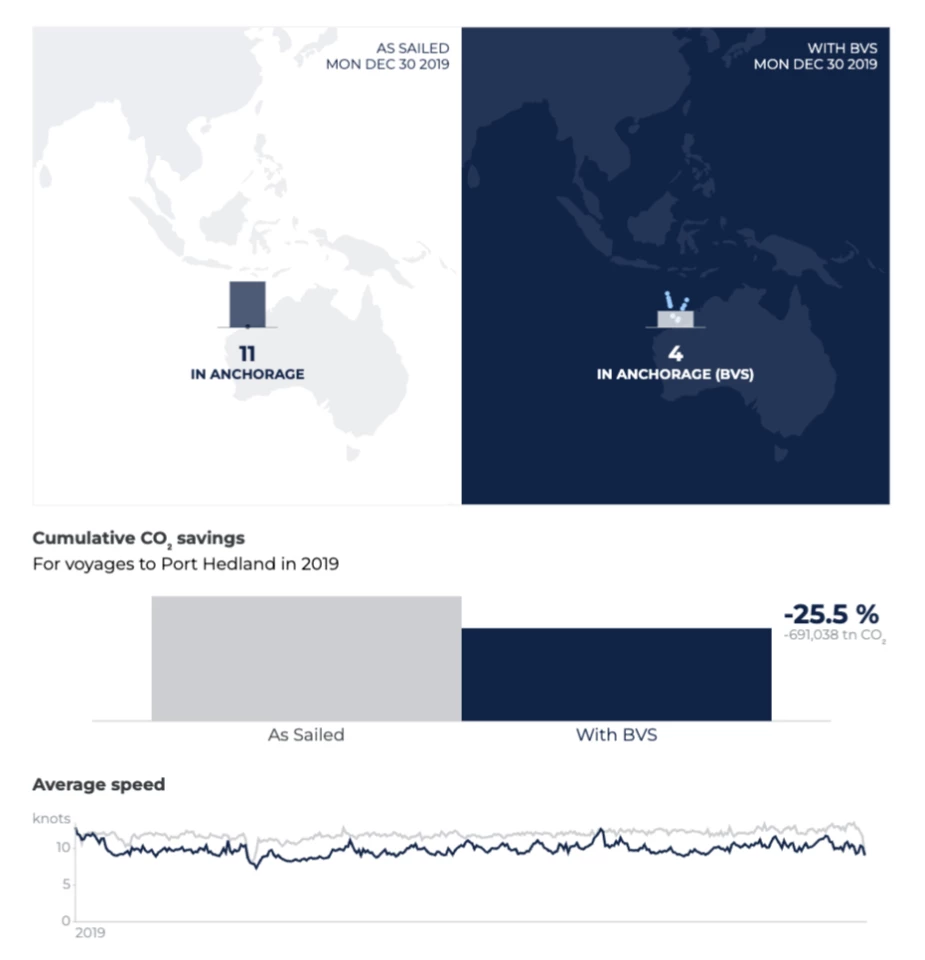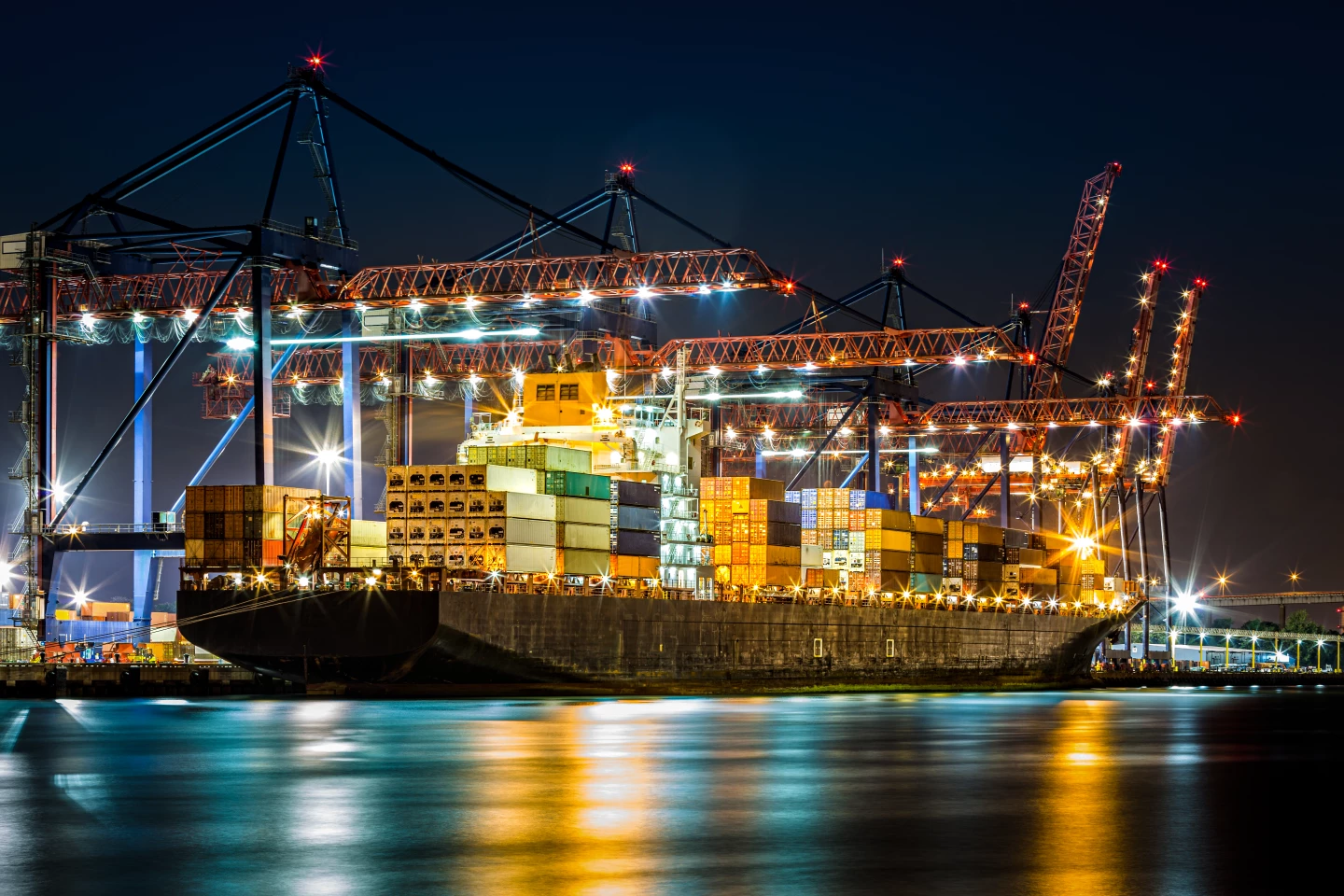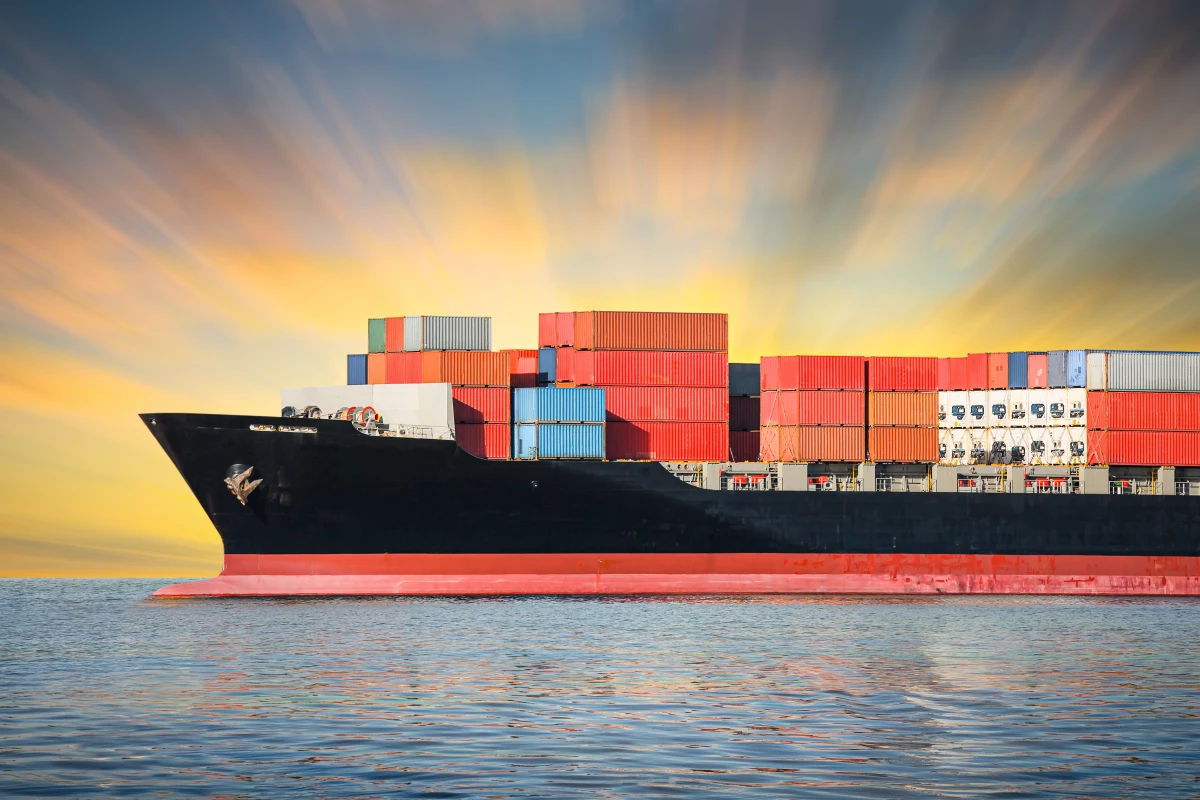Shipping is an extremely efficient way to move bulk goods around the planet, but it's responsible for around 3% of global man-made carbon emissions, and the unique energy requirements of long-haul cargo ships make them extremely difficult to decarbonize.
There are all manner of technological solutions in the pipeline: hydrogen, green ammonia and methanol powerplants, flettner rotors, heaving oscillators... There's even been a return to giant sail-wings, as well as giant autonomous kites designed to pull ships along and save fuel.
But that's what makes the Blue Visby Solution so fascinating; you don't have to alter the ships at all. You just pilot them differently.
Currently, according to the Blue Visby team, most cargo ships follow an operational practice known as "sail fast, then wait" (SFTW). That is, they go as quickly as they can from port A to port B, regardless of what the schedule's looking like at their destination. When they get there, they sit still and wait at idle, continuing to burn fuel, until it's time for them to dock and load/unload their cargo.

The Blue Visby Solution requires considerable connectivity, co-ordination and participation, from lots of different stakeholders, on a global scale – but where the rubber meets the road, it's incredibly simple. It simply tells the ships to slow down, so they arrive at port right on time.
Pushing all that bulk through the water at a slower speed cuts down hugely on hydrodynamic drag, so the engines burn considerably less fuel, with a corresponding drop in emissions. And the cargo delivery speed is totally unaffected; the ships still load and unload at exactly the same times.
How much of an efficiency gain are we talking here? The Blue Visby team studied the movements of 3,651 Panamax vessels taking 20,580 trips in 2022, and estimated these timing tweaks could cut emissions by a median rate of 23.2% without affecting customer outcomes.

Others have run the numbers on broader samples; Ship Nerd News reports on a study from Blue Visby Consortium member NAPA, which looked at 150,000 voyages from 13,000 cargo ships in 2019. The study found that 87% of voyages could reduce their speed, by an average of just 1 knot, and meet all their deadlines while reducing emissions by 16%. Not as much as the Panamax study, but it would still be a colossal contribution.
Now, the first sea trials are complete. Two bulk carriers, the M/V Gerdt Oldendorff and the M/V Begonia, deployed "all components of the Blue Visby Solution" including software, technical and operational systems, on voyages to Australia. The former recorded an estimated CO2 reduction of 28.2% against its standard SFTW speeds. The latter managed 12.9%, for an average of 17.3%.
That's a considerably larger affect than you'd get out of some of these huge sail systems, without modifying the ship at all. And from a scheduling tweak!
These initial results are incredibly promising, but eliminating SFTW thinking from the global shipping trade is no small task; according to Marine Log it's a practice that dates back to the age of sail. It's embedded in hard-fought, long-term contracts between shipping companies, customers, ports, dockworkers and all the many dependent services that plug into global logistics, sometimes with incentives.

And herein lies another nugget of Blue Visby genius; the consortium has created a contractual architecture built around a multilateral benefit-sharing mechanism that allows ship owners, charterers and cargo interests to share the costs (such as costs related to a longer ocean passage), and also the benefits (like fuel savings and any financial value attached to emissions reduction). It's an attempt to make the system a win-win-win situation, and to incentivize participation by all parties. The first sea trial also ran a test on this benefit-sharing system.
Apart from reducing fuel burn and emissions, saving money and staying on time, there are other benefits; avoiding extended waiting periods at anchor reduces hull fouling, further improving efficiency over time. It improves the air quality outside ports, and the speed reduction at sea reduces underwater noise pollution as well as the risk of whale strike.
It certainly looks like a head-slappingly obvious win for most parties involved, as well as for the planet. And it's a solution whose benefits will continue to accrue as other decarbonization technologies take hold; green fuels will likely be more expensive, and range will be an issue, so sailing slower will save more money and open up additional useful range as and when clean cargo shipping gets up and running.
“Decarbonization is unattainable without energy efficiency, and energy efficiency is impossible if ships continue to Sail Fast Then Wait," state Blue Visby Consortium co-ordinators Haris Zografakis and Pekka Pakkanen in a press release. "The CBH Prototype Trials demonstrate that the Blue Visby Solution will be a central element of any successful decarbonization strategy for all maritime stakeholders: shipowners, charterers, traders, cargo interests, terminals and ports.”
"We are very excited to see the results of the first Prototype Trials, conducted with invaluable support from Consortium member, CBH Group," says CEO Christian Wounlund. "All components of the Blue Visby Solution were tested: contracts, software, operations, and the benefit sharing mechanism. While both the Virtual Pilot Program and the Prototype Trials will continue in the coming months, we are on track for commercial deployment this year."
Source: Blue Visby








